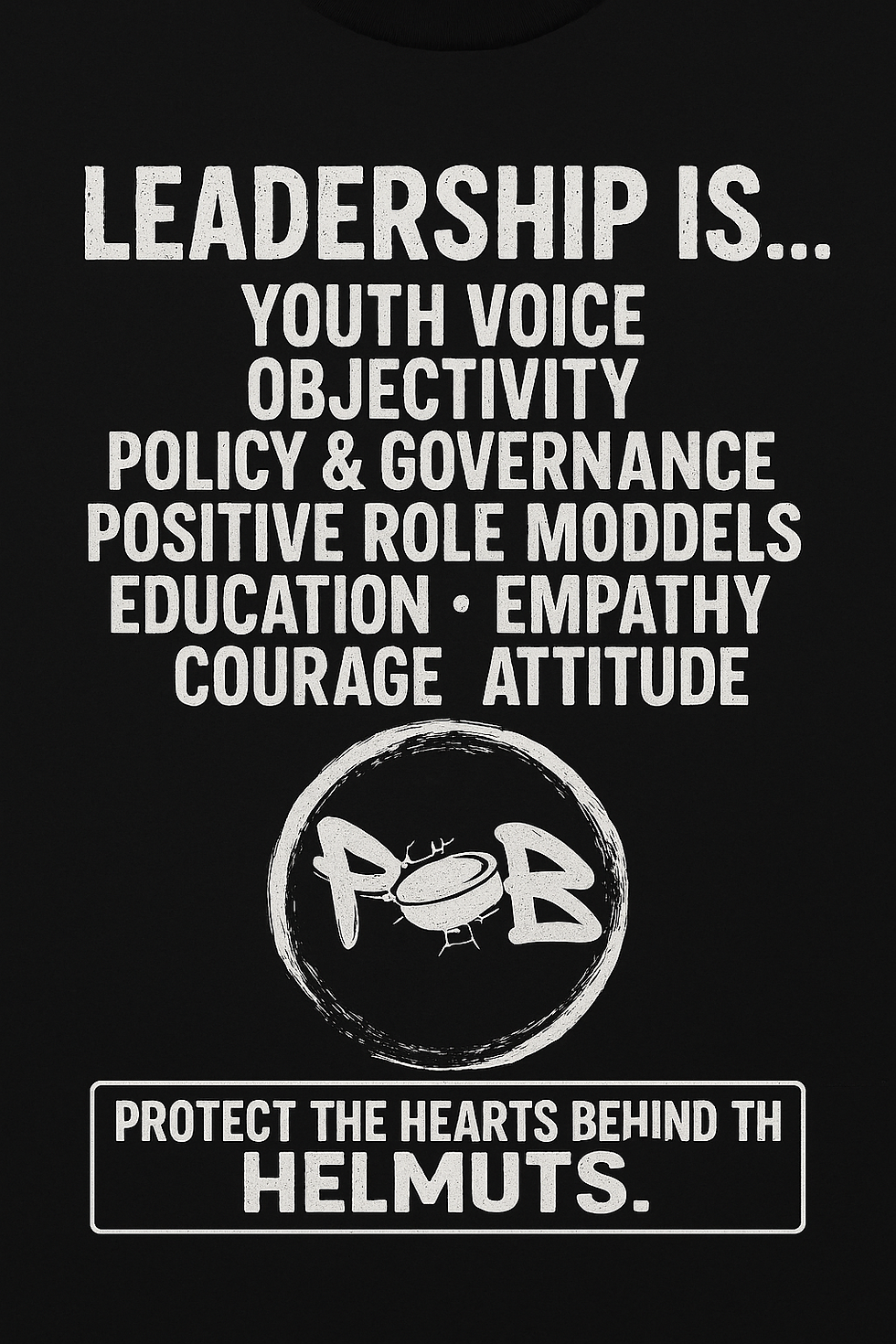Why It’s Okay (& sometimes essential) To Take a Season Off
- Puck Off To Bullying
- Jul 16
- 2 min read
Our culture often rewards rigidity disguised as commitment. We praise the ones who “never quit,” who “push through,” even when the cost to mental health, physical health, family time, or joy is high. But psychological flexibility—the ability to adapt, pivot, and choose what truly matters—is actually a more powerful life skill than white-knuckled perseverance.
In the increasingly expensive world of minor hockey, some parents find themselves stretched to their emotional, financial, and psychological limits. Doing whatever they can to keep their kid in the game.
it is with the deepest love and commitment. Kids internalize the unspoken rules of sport: Don’t fall behind. Don’t disappoint. Don’t stop. They see the stress on the family. When the family system is under strain, or the child or parents are showing signs of burnout, anxiety, or stress, continuing at all costs can do more harm than good.
And still, there's a quiet, nagging voice: “If we take a break, are we falling behind?” "We can't quit even for one year if he/she can have the chance to make it" " If we take time off we will lose out on the dream destination."
Let’s reframe that question.
Is It Okay to Take a Season Off?
Taking a season off isn't giving up. It’s actually a form of wise, responsive parenting. Research shows that children thrive when we show them that health, connection, and joy matter more than performance or optics.
A season off can help kids:
Rediscover why they love the sport
Heal from pressure or burnout
Try something new and broaden their identity
Spend more time on academics, family, or mental health
A Message for the Parents
To the mom who’s working double shifts, giving plasma, and hustling to make it work: You are not failing your child by pausing. You are showing them what love, sacrifice, and mental wellness look like. And if fundraising is something you choose to do, it should empower—not deplete—you.
Taking care of your own mental and emotional wellness is not a luxury. It’s a necessity. And your child needs you healthy far more than they need another season of elite sport.
Compassionate Solutions
If your child needs to stay connected: explore skills clinics, open skates, or multi-sport community leagues that are more affordable and flexible.
If finances are the only barrier: reach out to local charities, team treasurers, or national funds (like KidSport or Jumpstart) for one-time grants. Talk to your association, they can do payment plans and discounts.
There’s no one path to success. But there is always a path to mental health, resilience, and family well-being. Let’s honor those routes too.
Parents, you’re doing amazing.
Take the time you need. The game will wait. And your child will thank you for the wisdom of your choice.




Comments